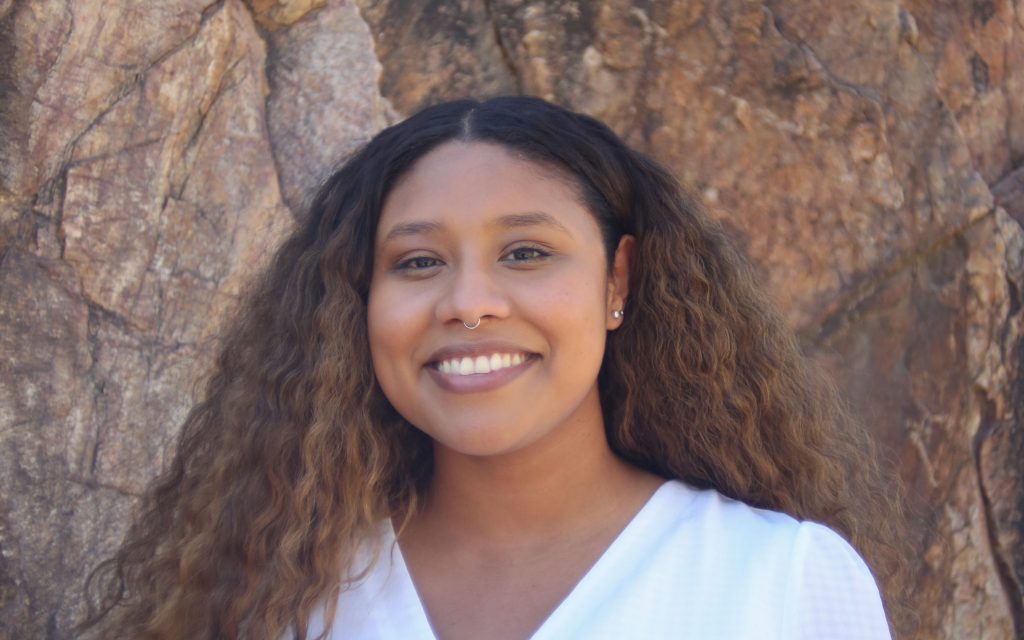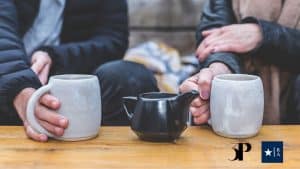Tyler Owens: What I was Raised to Believe

By Tyler Owens
“You’re either playing inside or outside! Pick one,” my aunts exclaim to my little cousins.
They come to a halt from running around the kitchen and dining room where the women in our family all prepare food for the men that are coming back from their early morning of digging. As solemn as the occasion was, there is laughter that fills the air and almost makes everyone forget that we have gathered to lay a loved one to rest.
Growing up, I did not really have a choice in whether I was ready to help in the kitchen instead of continuing to watch the clouds roll by or run around in the 113-degree heat trying to catch someone else to be “it.” Slowly throughout my childhood I’d recognize that girls in my family would soon be pulled into cutting potatoes, dicing meat, or making chumuth (traditional Akimel O’odham bread). While the boys would go out to chop wood, dig, and do any heavy lifting that needed to be done.
It was very clear that there was a role I eventually needed to fill, and that role helped serve a greater purpose. First, I helped the women with their tasks. When the work was done, I’d get a moment to myself before checking to make sure that my elders had plates, everyone had what they needed, and would start offering coffee just in time for sweets. I’d hastily eat the food that I was able to gather after everyone else was served and then it was time to clean up.
In my family and community, we care for one another and that is just a part of life. There is no such thing as individuality in my family. No matter what I do in life, it would always circle back to my family. My actions, successes, and failures will always be not only a reflection of myself but of where I come from. Everyone that had a hand in raising me, taught me what I needed to know to ensure that I was brought up in a way of wanting to contribute to something that was bigger than myself.
It was not until I was 11 years old that I learned that was not the case elsewhere. For example, preparing for funerals I was used to the women cooking for a week for visitors, creating flower arrangements, and making sure that the wake and funeral were going to be exactly as it needed to be. Meanwhile, the men would go out to the cemetery and dig the grave, chop wood, and gather materials needed to ensure our relative was safely laid to rest.
When my Grandpa Calvin passed away, my mom, brother, and I flew to Queens, New York to be there for his services. But when his wake came around it was people sitting in chairs and the food was catered. All funeral arrangements were made by the funeral home and when the wake ended there was no taking him home with us for one last night at home. He stayed in the mortuary until he was to be brought to the church.
In Arizona, from the moment someone is born until their passing, they are cared for and sent off by loved ones. Yet, in New York, strangers who could not describe how infectious my grandpa’s laugh was, recall a memory of him holding my 5-year-old hand in the snow to take me to the bus, or knew how phenomenal his baked mac-and-cheese was, were taking care of him.
During my time living in cities, I recognize that sense of community and belonging to one another is not as important as in rural America. In Gila River, we know our neighbors and the families that have spent generations living around us.
I know in my lifetime, caring for others in everything I do will always be at the forefront of my work and decisions. This lesson I appreciate and hope to one day pass onto the next generation with the help of my family.
Tyler Owens (she/her) is from the Gila River Indian Community in Southern Arizona where she was born and raised. Owens currently attends Chandler-Gilbert Community College where she is studying Finance. Prior to joining the Rural Assembly, Owens worked with the National Congress of American Indians where she took on various roles, such as: Membership Coordinator, Youth Program Associate, and Administrative Assistance. Since graduating high school, she has had opportunities to grow and learn through internship opportunities with the Department of Justice and the Arizona Coyotes (NHL). As an Afro-Indigenous Latina, she has a strong drive to create a better environment for young people and the communities where she has roots. When she isn’t working Ms. Owens enjoys spending time with her loved ones and playing volleyball.
Tyler’s essay is a response to the Rural Youth Catalyst’s “I Was Raised to Believe” project with PBS American Portrait.
For additional information about the Rural Youth Catalyst Project or to collaborate with us please contact Kim Phinney and Kathy Moxon. Kim can be reached at [email protected] and 802-922-2274. You’ll find Kathy at [email protected] and 707-498-9502.







